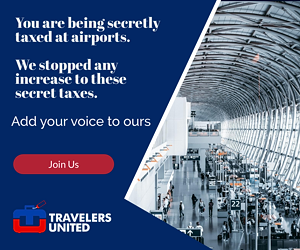Extra fees mean different things to airlines, travelers, and corporate travel departments.

What may feel like a simple internal accounting breakdown doesn’t matter much to passengers. The only real issue for frequent travelers is what part of the ticket counts towards frequent flier qualifying dollars. Airlines usually now demand these qualifying dollars to keep up status.
Extra fees for corporate travel departments and travel agents (both “brick and mortar” or online agencies) can matter very much indeed. These fees affect discounts and commissions, often in a big way. For international airfare, the effects of total spending can be giant. For the corporate travel manager bean-counters, this spending issue is what shows on a ticket as a “YQ” surcharge.
“YQ” carrier surcharges have become important for airlines and for travel managers.

I just issued a discounted business trip to Europe on Delta Air Lines, with a total price of $3,208 — which is a great fare. But the supposed “base fare” on this ticket is $1,700. The “YQ” surcharge, $1,400 (the rest is legitimate US and foreign taxes).
For corporate travel departments and “advisors,” base fares are what matter.
The frequent traveler will get qualifying dollars on $3,100 of the ticket, so why does it matter? Well, because the commission Delta Air Lines pays a travel agent/advisor, and the discount they would give very large corporate accounts, is based completely off the base fare. What the passenger sees as airfare is not what the corporate travel manager or travel agent sees when examining bookkeeping.
If this client had traveled economy class, the lowest “base fare” was $45, with the carrier surcharge $340. Carrier surcharges, the majority of airline bookkeeping whether in the economy or business class, are non-discountable. Period.
Bookkeeping systems are secret but very important and affect profits.
Commission deals and corporate discounts are private, but they absolutely exist. These corporate and agency deals are critical for travel agency survival. Some large agencies have their own deals. Some agents get carrier surcharges deals through consortiums.
These bookkeeping deals can make a real difference to a large company’s travel budget. While I’m not privy to details of these discounts, I know they exist. Airlines also can make these deals with nonprofits, including universities.
And while consumers may think “who cares?”, the economics of YQ surcharges are important. I don’t work for a large travel company and I don’t use a travel agent. However, most airline tickets — perhaps 70 percent or more — actually are booked through either a human travel agent or an online travel agency (OTA).
I regularly have people tell me they booked online through the airline. But unbeknownst to them, their tickets were booked through an OTA. Most of those OTAs are owned by Expedia or Booking Holdings (these semi-monopolies are a different matter.)
The final airline bottom line is important. This is how the aviation system makes money.
In any case, the lack of revenue with non-commissionable YQ surcharges is significant. All of the extra fees and different deals add up in the end. The final deals are all affected and could mean life and death for airlines, agencies, travel managers, and frequent fliers.
Any business that wants to stay in business has to make money. One way or another, consumers will end up paying, either in higher agency fees or reduced service.
But also, like resort fees, these charges are just dishonest. And they should stop.
Accounting photo by Austin Distel on Unsplash
READ ALSO:
Kids should sit with their parents on planes
How airline alliance improvements are making international travel worse
Janice Hough is a California-based travel agent a travel blogger and a part-time comedy writer. A frequent flier herself, she’s been doing battle with airlines, hotels, and other travel companies for over three decades. Besides writing for Travelers United, Janice has a humor blog at Leftcoastsportsbabe.com (Warning, the political and sports humor therein does not represent the views of anyone but herself.)




